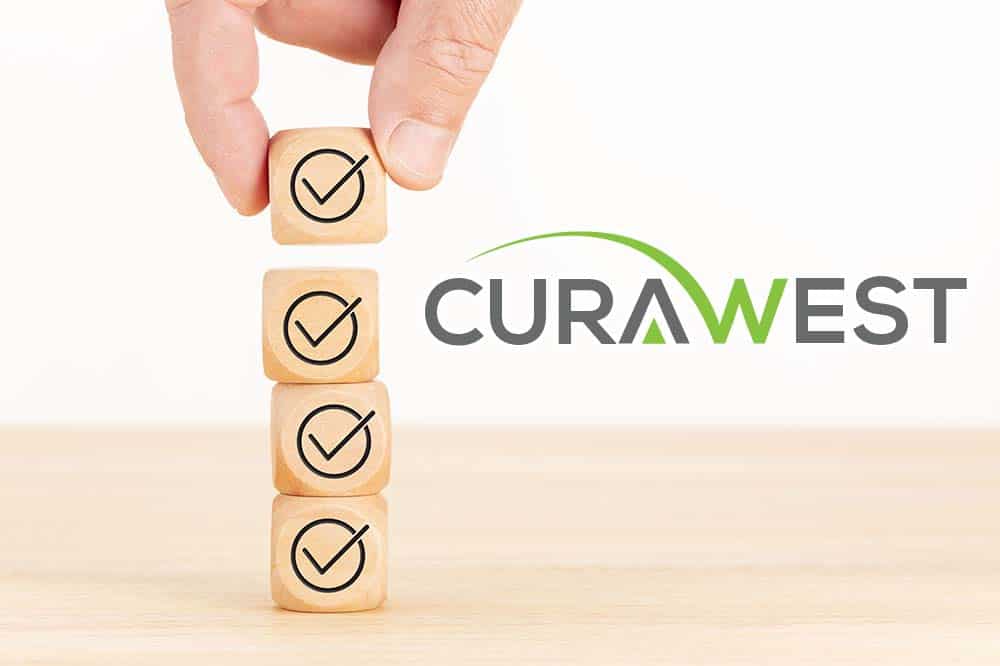Holistic addiction treatment is a comprehensive approach that focuses on treating the whole person rather than just the addiction itself. It recognizes that addiction is a complex disease affecting all aspects of a person’s life, including physical, emotional, and spiritual well-being. Holistic treatment programs aim to address these areas through traditional and alternative therapies.
Holistic addiction treatment aims to help individuals achieve lasting recovery by addressing the underlying causes of addiction rather than just treating the symptoms. This may involve a range of therapies, including cognitive-behavioral therapy, mindfulness-based therapies, art therapy, yoga, meditation, and nutrition counseling.
In addition to these therapies, holistic addiction treatment programs may include services such as massage therapy, acupuncture, and chiropractic care. These alternative therapies can help individuals manage addiction withdrawal’s physical and emotional symptoms, reduce stress, and improve overall well-being.
If you or someone you love has a substance use disorder, Curawest is available to help. We are dedicated to providing the most comprehensive and individualized medically monitored detox program. To learn more about our programs, contact us today.
What Is Holistic Addiction Treatment?
Holistic addiction treatment is a comprehensive approach to addiction recovery that addresses addiction’s physical, emotional, and spiritual aspects. It recognizes that addiction is a complex disease that requires a multi-faceted approach to treatment that goes beyond just addressing the symptoms of addiction.
Curawest is an addiction treatment center offering a holistic recovery approach. They believe a successful recovery involves treating the whole person rather than just the addiction. Their approach includes a combination of traditional and alternative therapies designed to address addiction’s physical, mental, and emotional aspects.
At Curawest, their holistic addiction treatment program begins with a thorough assessment to determine the underlying causes of addiction. This allows their treatment team to create a personalized treatment plan that addresses the unique needs of each individual. The treatment plan may include evidence-based therapies, such as cognitive-behavioral therapy, and complementary therapies, such as mindfulness-based therapies, yoga, and meditation.
In addition to these therapies, Curawest also offers alternative therapies such as acupuncture, massage therapy, and chiropractic care. These therapies can help individuals manage addiction withdrawal’s physical and emotional symptoms, reduce stress, and improve overall well-being.
Healing the Mind & Body as a Whole in a Denver, CO Treatment Program
The process of recovery from addiction involves addressing the negative impacts of addiction on all aspects of a person’s life. This includes the physical, psychological, and spiritual dimensions. Addiction often results in malnourishment and weakened physical health, as well as worsening symptoms of mental illness and a disconnection from the world around them.
At CuraWest, we recognize the far-reaching implications of addiction and have developed a holistic program that addresses the body, mind, and spirit. Our program incorporates holistic treatment approaches during both the detox and residential portions of the program, allowing clients to heal thoroughly and develop the necessary skills to remain sober. By taking manageable steps towards recovery, clients can regain control of their lives and work towards achieving personal goals.
We Are Here For You
Let Us Help You Heal
Our Drug & Alcohol detoxification experience is second to none.
Learn how we can help by speaking with one of our Treatment Advisors today.
Integrating Alternative Therapies in Substance Abuse & Addiction Treatment
Integrating alternative therapies in substance abuse and addiction treatment has become increasingly popular. Traditional forms of addiction treatment, such as medication and talk therapy, may not work for everyone, and alternative therapies offer additional options for those seeking recovery.
Alternative therapies may include yoga, meditation, art therapy, and acupuncture. These therapies aim to treat the person, addressing addiction’s physical, emotional, and spiritual aspects. They can also help to manage stress, anxiety, and depression, which often co-occur with substance abuse.
Alternative therapies can be used with traditional addiction treatment or as standalone approaches. For example, some treatment centers may offer a yoga or meditation class as part of their program, while others may have a dedicated alternative therapy wing.
Integrating alternative therapies in substance abuse and addiction treatment can help individuals develop coping skills, manage stress, and promote overall well-being. Alternative therapies can play an important role in recovery by treating the whole person rather than just the addiction.
Nutrition & Exercise & Their Role in Holistic Addiction Recovery
Nutrition and exercise play a crucial role in holistic addiction recovery. Addiction can significantly affect a person’s physical health, and proper nutrition and exercise can help restore the body’s strength and vitality.
Malnourishment is a common issue for those struggling with addiction, and it can lead to weakened immune systems, decreased energy levels, and other health problems. Proper nutrition can help counteract these effects and provide the body with the nutrients it needs to function optimally. Healthy foods like fruits, vegetables, whole grains, and lean proteins can help improve overall physical health and provide a solid foundation for recovery.
Exercise is also an essential component of holistic addiction recovery. Exercise can help improve mood, reduce stress and anxiety, and promote better sleep. Physical activity can also stimulate the production of endorphins, natural feel-good chemicals that can help reduce cravings and improve overall well-being. Incorporating regular exercise into a daily routine can help individuals in recovery feel better physically and mentally.
How Meditation & Mindfulness Can Aid in Finding Inner Peace
Meditation and mindfulness can be powerful tools for achieving inner peace. Both practices involve focusing on the present moment, which can help calm the mind and reduce anxiety and stress. We can develop self-awareness and emotional regulation by cultivating awareness and non-judgmental acceptance of our thoughts and emotions.
Meditation involves intentionally focusing the mind on a particular object or sensation, such as the breath or a mantra, to calm the mind and reduce distractions. Regular meditation practice has been shown to reduce symptoms of anxiety and depression, as well as improve cognitive function and emotional regulation.
On the other hand, mindfulness involves intentionally paying attention to the present moment without judgment or distraction. This practice can help us develop greater awareness of our thoughts and emotions and cultivate a more compassionate and accepting attitude toward ourselves and others.
Both meditation and mindfulness can be integrated into addiction recovery programs to help individuals manage cravings, reduce stress and anxiety, and develop greater self-awareness and emotional regulation. By incorporating these practices into a holistic approach to addiction recovery, individuals can gain a greater sense of inner peace and emotional well-being.
Our Drug & Alcohol Detox Services Include
The Effectiveness of Art & Music Therapy
Art and music therapy are effective in aiding individuals in addiction recovery. These forms of therapy provide an outlet for self-expression and can help individuals process and cope with their emotions.
Art therapy involves self-expression using art materials and techniques, such as painting or drawing. It can help individuals explore their feelings and experiences nonverbally, which may be especially helpful for those who struggle with verbal communication. Art therapy has been shown to help reduce symptoms of anxiety and depression, as well as improve overall well-being.
Music therapy involves using music as a tool for emotional and physical healing. It can help individuals manage stress, improve mood, and enhance communication and social skills. Music therapy can also be helpful for individuals who struggle with chronic pain or physical limitations. Research has shown that music therapy can help reduce symptoms of depression, anxiety, and PTSD.
Art and music therapy can be valuable components of a holistic addiction recovery program, as they provide individuals with alternative means of expression and help promote overall well-being.
Healing Through Nature Utilizing Outdoor Activities
Nature can play a powerful role in addiction recovery. Outdoor activities like hiking, camping, and nature walks can help individuals connect with nature and find inner peace. In addition to providing a peaceful environment, outdoor activities can help reduce stress, boost mood, and improve physical health.
Research has shown that spending time in nature can help reduce symptoms of anxiety and depression, which are often co-occurring disorders with addiction. Being surrounded by greenery and fresh air can calm the mind and body, helping individuals feel more grounded and centered.
In addiction recovery, outdoor activities can also help individuals build confidence, improve self-esteem, and develop a sense of purpose. Physical activities like hiking and rock climbing can help individuals push themselves beyond their perceived limitations and build resilience. These experiences can help individuals learn new skills and develop a sense of accomplishment, which can be instrumental in recovery.
At CuraWest, we understand the importance of nature in addiction recovery. Our holistic program incorporates outdoor activities like hiking, yoga, and meditation to help clients connect with nature and find inner peace. These activities complement traditional therapies, providing a well-rounded approach to addiction treatment.
Holistic Approaches to Relapse Prevention
Holistic approaches to addiction treatment focus on healing the entire person – mind, body, and spirit – and, thus, can effectively prevent relapse. Here are some holistic approaches to relapse prevention:
- Mindfulness Practices – Mindfulness practices, such as meditation, can help individuals become more aware of their thoughts and emotions and develop the ability to respond healthily. This can be particularly helpful in preventing relapse triggers, which are often linked to stress, negative emotions, and other internal factors.
- Self-Care – Practicing self-care is an important part of holistic addiction recovery. This involves caring for one’s physical, emotional, and spiritual needs. Individuals can reduce their stress levels and improve their well-being by engaging in healthy activities, such as exercise, healthy eating, and meditation.
- Alternative Therapies – Incorporating alternative therapies, such as yoga, acupuncture, and massage therapy, can also be beneficial in preventing relapse. These therapies can help individuals reduce stress, improve mood, and manage cravings and other withdrawal symptoms.
- Support Networks – Developing a strong support network is essential to addiction recovery. This can include participating in group therapy sessions, attending 12-step meetings, and building relationships with sober friends and family members.
- Continued Treatment and Aftercare – Holistic addiction treatment is an ongoing process, and individuals must continue to engage in self-care, mindfulness practices, and other holistic approaches to maintain their sobriety. Aftercare programs like outpatient therapy or sober living arrangements can provide ongoing support and accountability.
Focusing On Healing Trauma & Its Connection to Recovery
Trauma can be a root cause of addiction, and it can also be a barrier to recovery. For this reason, it is crucial to address and heal any underlying trauma as part of addiction recovery. Holistic approaches to recovery recognize the connection between trauma and addiction and emphasize the importance of addressing both.
One effective approach to healing trauma in addiction recovery is therapy specifically targeting trauma, such as EMDR (Eye Movement Desensitization and Reprocessing) or trauma-focused cognitive-behavioral therapy. These therapies can help individuals process and release traumatic memories, emotions, and beliefs that contribute to addiction and hinder recovery.
In addition to targeted therapy, holistic addiction recovery may incorporate activities promoting emotional healing, such as mindfulness meditation, yoga, or journaling. These activities can help individuals connect with their emotions and develop healthy coping mechanisms to manage them.
By addressing and healing trauma as part of addiction recovery, individuals can break the cycle of addiction and develop a strong foundation for long-term recovery.
Finding Meaning, Connection, & Purpose Through Spirituality in Holistic Addiction Treatment
In holistic addiction treatment, spirituality can be essential in helping individuals find meaning, connection, and purpose in their lives. Many people struggling with addiction feel a sense of emptiness or disconnection, which can lead them to turn to substances to cope. By incorporating spiritual practices into treatment, individuals can explore their values, beliefs, and sense of purpose, which can be instrumental in achieving and maintaining recovery.
Spiritual practices can include various activities such as meditation, prayer, and yoga. These practices help individuals become more mindful and present, allowing them to develop deeper self-awareness and connection to the world around them. Additionally, spiritual practices can help individuals develop greater compassion for themselves and others, which can be critical in building healthy relationships and a sense of community.
For some individuals, spirituality may involve connecting with a higher power or engaging in a specific religious tradition. However, for others, spirituality may involve simply exploring one’s values and beliefs or connecting with nature and the environment.
Regardless of the specific practices involved, incorporating spirituality into addiction treatment can be an effective way to help individuals find meaning and purpose in their lives. By doing so, individuals can develop a sense of fulfillment that can serve as a powerful motivator for maintaining their sobriety over the long term.
Begin Healing Now!
Have A Call With One Of Our Treatment Advisors
Don’t Suffer Any Longer
Contact Us to Learn More
At Curawest, we remain dedicated to providing our clients with a comprehensive program of medically assisted detox that focuses on much more than physical stabilization. In addition to emphasizing physical recovery, we tackle mental, emotional, and spiritual well-being. While prioritizing a safe and comfortable drug withdrawal, we offer individual, group, and family therapy sessions, case management services, relapse prevention training, and aftercare planning.
Contact us today if you or your loved one is ready to begin an entirely new way of life and commit to long-term recovery. As soon as you call, we start developing a plan of action that begins with an initial pre-assessment. This assessment helps us determine the most appropriate level of care for each unique case. We identify potential coverage options if our medically monitored detox program is a good fit. We work closely with most major regional and national insurance providers. Contact us today for a free, no-obligation insurance benefit check.

Reviewed for accuracy by:
Jasmine Billups
LPC-S
Jasmine has worked in the mental health field for over 18 years. She earned her B.A. in Psychology with a Minor in Child and Family Relations from North Carolina Central University, and her M.A. in Mental Health Counseling from Argosy University. Jasmine is a Licensed Professional Counselor Supervisor and has specialized in addiction for over 10 years.























